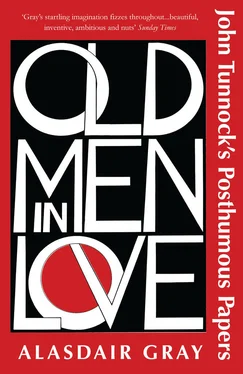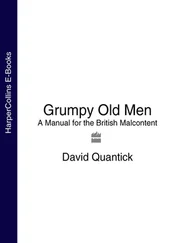Instead of answering I asked what became of the Chinaman. She said a legal tribunal had ruled that he had no right to political asylum here since he was obnoxious to the Chinese government over a matter of land owning, and that was not political! She spoke the last two words so intensely that folk nearby turned to look, then she said, “Ownership of land, theft of land, depriving folk of their birthplace is the world’s first and worst political crime! I appealed against that decision, and since my house is big enough I told a senior judge I would give him a residence in Scotland but no! Back to China he must go and be punished, perhaps executed for fighting injustice because Lord Kingarth says the Chinese Communist and American Capitalist theft of his land is not a political matter.”
At that moment I saw across the wall at my elbow Zoe passing along Great Western Road. As usual outside home we exchanged the slightest of glances so I was shocked when —— said, “Is she your new woman?”
I got up and said, “I’m leaving if you say another word about her.” “Calm down ostrich,” said ———, “I’m going to get another coffee. Another lager?” I offered to get both if she would change the subject when I returned. I came back and she talked about Glasgow’s drug trade. The chiefs who invest in it and collect the profits are businessmen and property developers known to the police, but in no danger of arrest because they mix socially with local politicians who they also bribe, and never themselves handle smack, crack or other opium derivatives. Tougher criminals, also known to the police, control the source of the drug and also keep out of the public eye. The stuff is handled at street level by three classes of underling, the lowest and largest being ordinary users, many of them unemployed youngsters who often rob and mug people for money to buy it. From these the most desperate addicts are recruited to sell it in homes, pubs and lavatories. The careful and efficient among these distributors are also the least addicted, so can graduate to dealing with top suppliers and the police. The public and the press want frequent news of successful drug raids and arrests, so every week or two these smart distributors tell the drug squad where they can arrest their least useful underlings, after which they recruit others. “So Glasgow is like every other place where drugs are criminalized. Rich, secure bastards cream off the trade’s profits while exploiting and buggering the poorest. If drugs were freely sold as they were before the 1960s a third of British crime would stop, our jails be half emptied, a few addicts would continue to die annually of overdoses, a lot of fat cats would be poorer and the police free to concentrate on arresting thieves, frauds and other murderers. So in Britain and the U.S.A. the use of all drugs but alcohol and nicotine will be kept criminal despite Baroness Wooton’s government committee in the 1960s announcing that marijuana is safer.”
This was more than I could stand. I am going to avoid —— because she is trying to start a drug rehabilitation unit and wants me to help her! I hurried away under pretext of needing to pee and came home, terribly depressed.

Tonight there erupted into Tennants the historian Angus Calder who hailed the Mastermind, sat down and talked enthusiastically. He had come from a Glasgow meeting of Independence First group who want a referendum to find how many Scots want a truly independent parliament. Public opinion polls show a high likelihood of the Scot Nats having a majority at the Scottish Parliamentary Election next month. He said, “Next year is the 300th anniversary of the Anglo-Scottish Union of Parliaments and a major chance to show we do not want it — that we are sick of Scotland being used as a NATO military and nuclear missile base by the English government, and deprived of every industry that the Scots pioneered, and once made Scotland famous.”
Said Mastermind, “You seem in pursuit of an old-fashioned Scotland running on Owenite New Lanark lines, in fact a Scottish Socialist Co-operative Wholesale Republic. But Alex Salmond and others in that party are promising better investment opportunities to businessmen, and at least one is urging total privatisation of hospitals.”
“Every good government must encourage productive business, and have a right-wing and left-wing party. When a separate Scottish Parliament has signed a new, fairer peace treaty with England than the 1707 Treaty the Scottish National Party will vanish and I believe the new Scotland will make Norway its example, not the Channel Islands.”
“What if the London government refuses to sign a new treaty allowing an independent Scottish one?”
“With a majority of voters on our side we can appeal to the European Parliament.”
I was amused to hear this English Socialist from Edinburgh discussing Scotland’s future with an English Tory in Glasgow. Calder does not know me by sight so kindly old Mastermind interrupted his torrent of speech by bringing me into the conversation. When he mentioned my name Calder murmured, “Tunnock? John Tunnock?” and stared hard at me before asking sharply, “How’s your work going?”
“What work?”
“Your great historical triptych or trilogy about love, sex, money, art, politics and everything. It starts in Athens. I read several chapters in Chapman a few months ago.”
“A few years”, I told him.
“How’s it going?”
“Nowhere. You wrote a letter that destroyed my ambitions in that direction.”
“How can I possibly have done that?” he cried, astonished.
“You persuaded me that the historical fiction I planned was escapist fantasy. You urged me to write about Scotland instead. I tried that and failed.”
“I remember writing what I meant to be an encouraging letter because I liked the start of your novel. Most historical fiction is trash of course, because most of every kind of fiction is trash, but I am second to none in my admiration for Walter Scott at his best. He created, single-handed, a new kind of novel and a new school of social historians. Read what Carlyle, Thiers, Michelet and Ranke say about him as well as Pushkin, Balzac and Manzoni. I refuse to be found guilty of a crime I never committed. Those chapters you wrote about Periclean Athens were damned good.”
I explained the impossibility of describing The Clouds performance.
“Leave it out.”
I told him there was a worse problem: my story had to end with the trial of Socrates. Plato’s account showed a wholly good, wise man being condemned to death by a democratic court merely because he was too good for it. I too believed Socrates was wise and good. I also believed the democracy had a strong case against him that Plato had not acknowledged. I could only show the strength of the democracy’s case by bringing in witnesses who were dead or in exile at the time of the trial. How could I possibly do that? Calder said, “Do what Walter Scott did in Quentin Durward. Tell a historical story as well as you can and put notes at the end saying where you departed from the record but don’t blame me for your difficulties.”
He downed his drink, jumped up and rushed off.
“A precipitate fellow, but not unwise,” rumbled Mastermind.
It was far from closing time but I left Tennants soon after, excited and buoyant. Leave out The Clouds chapter? What other chapters could I omit before tackling The Trial of Socrates, for which the others were mainly introductory? At home I emptied pigeonholes of my research notes for The Plague, Death of Pericle s, The Sicilian Expedition, Victorious Sparta, The Tyranny of The Nine and laid them out in chronological order on desktop, sideboard, sofa and armchairs and mantelpiece. If Zoe brought people home tonight she would have to entertain them in the dining room downstairs. I was awed by the idea of condensing all these preparatory notes into a few sentences of The Trial. Was pleased when Zoe returned without horrible company and stood staring, never having seen me so enthusiastically at work before. She said, “Why are you buzzing about like a bee in a bottle?”
Читать дальше













